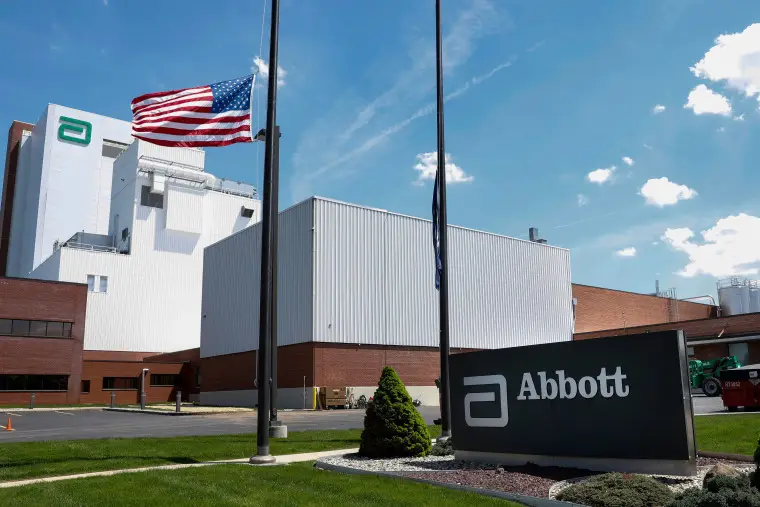
After baby formula problems, Abbott Laboratories under DOJ investigation
Abbott Laboratories is under investigation by the U.S. Department of Justice, the company confirmed Friday, almost a year after it shut down a Michigan baby-formula plant after illnesses were reported.
Abbott did not specify what aspect of the company is under Justice Department scrutiny.
“DOJ has informed us of its investigation and we’re cooperating fully,” an Abbott spokesperson said in a statement to NBC News.

The Wall Street Journal reported earlier Friday that the Justice Department was investigating conduct at Abbott’s plant in Sturgis, Michigan, citing people familiar with the matter who it did not name. NBC News has not independently confirmed the nature of the investigation.
The DOJ declined to comment Saturday.
Abbott voluntarily shut down production at its Sturgis infant formula manufacturing plant on Feb. 17, 2022, after infants who consumed formula made at the plant became sick.
The shutdown contributed to a nationwide infant formula shortage.
Four infants, two of whom died, were sickened by a rare bacteria after consuming powdered formula made at Abbott’s Michigan factory.
Federal investigators were unable to definitively determine the source or sources of the bacteria, Cronobacter sakazakii, which can cause severe illness.
The company signed a consent decree with the federal government in May that laid out what it would do before re-opening its plant.
The Food and Drug Administration said when the proposed consent decree was announced that "the government alleges that powdered infant formula products manufactured at Abbott Nutrition’s Sturgis facility were adulterated because they were made under insanitary conditions and in violation of current good manufacturing practice requirements."
Production at the Michigan factory, which makes three of the country’s most popular brands — Similac, Alimentum and EleCare — resumed in June.
Abbott Labs previously said that it “continue[s] to enhance our manufacturing and quality processes to ensure that our products remain free of Cronobacter Sakazakii" and had “already begun implementing corrective actions and enhancements at the facility.”







